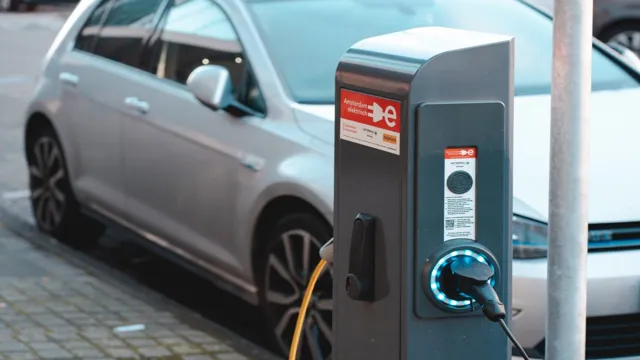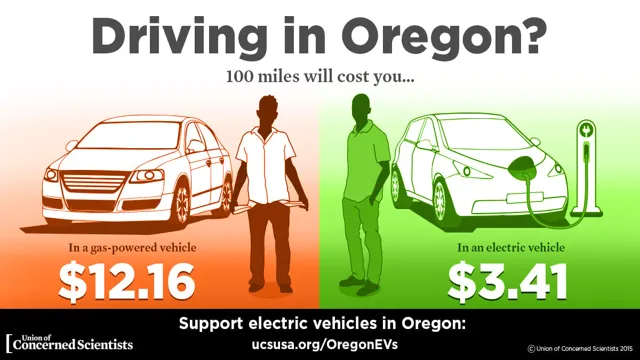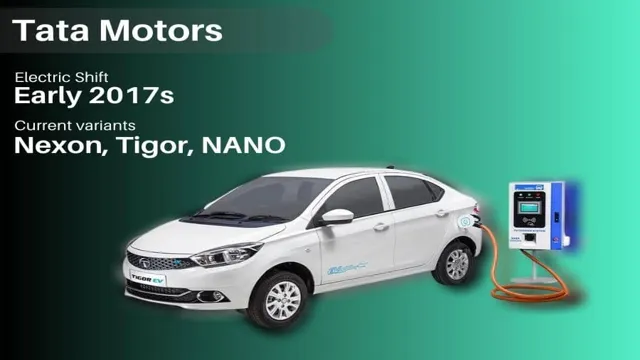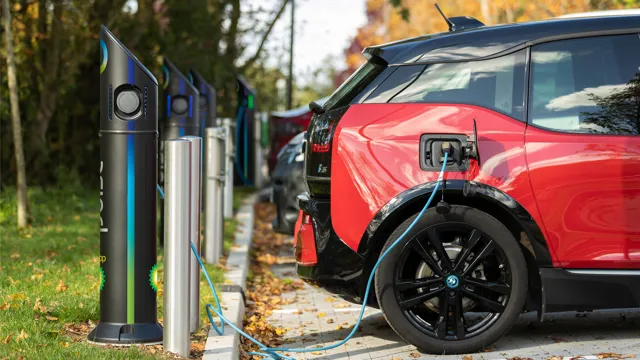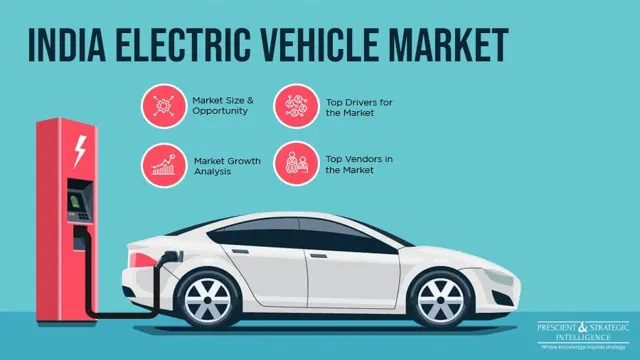Driving towards savings: Exploring the financial benefits of electric cars in the UK
Have you ever considered the financial benefits of driving an electric car in the UK? With the government’s push towards a sustainable future, electric cars are becoming an increasingly popular choice amongst motorists. Besides the environmental advantages of reducing carbon emissions, there are also several financial benefits to be gained. In this blog post, we’ll explore these financial benefits, and how they can help you save money in the long run.
So let’s buckle up, and take a ride through the world of electric cars!
Lower Fuel and Maintenance Costs
When it comes to owning an electric car in the UK, one of the biggest financial benefits is lower fuel and maintenance costs. Since electric vehicles are powered by electricity rather than gasoline or diesel, they’re much cheaper to fuel up. According to research, charging an EV is roughly one-third of the cost of refuelling a traditional car, meaning that drivers can potentially save hundreds of pounds a year on fuel costs alone.
Additionally, electric cars tend to have fewer moving parts than gas-powered cars, which means that they require less maintenance and are generally more reliable. This translates into lower maintenance costs, which can save drivers even more money. In fact, recent studies have shown that over a longer time period, electric vehicles are typically much cheaper to maintain and repair than their traditional counterparts.
All of these factors make owning an electric car a smart financial decision for those looking to save money in the long run.
Electricity is cheaper than petrol
Electricity is truly cheaper than petrol when it comes to fuel and maintenance costs. As electric vehicles become more popular, people are starting to notice the benefits more and more. While petrol prices tend to be more volatile and subject to change frequently, electricity prices remain relatively stable over time.
Not only do electric vehicles typically have lower fuel costs, but they also require fewer regular maintenance services, as they have fewer moving parts than traditional cars. With less frequent oil changes, brake pad replacements, and other services, electric vehicles can save owners thousands of dollars over the life of the car. So, if you’re looking to save money while also reducing your carbon footprint, an electric vehicle may be the perfect choice for you.
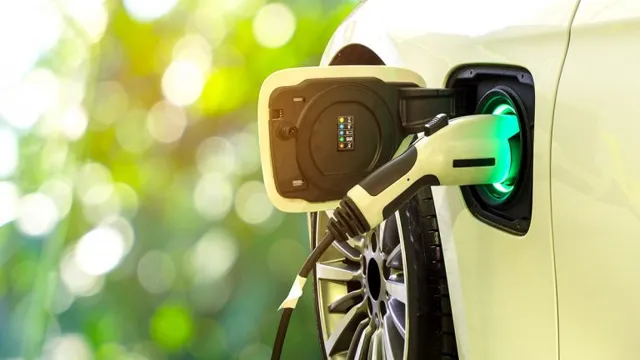
Reduced servicing costs
When it comes to owning and operating a vehicle, fuel and maintenance costs can add up quickly. However, with the rise of electric vehicles (EVs), drivers are experiencing significantly reduced servicing costs. Because EVs have fewer moving parts than traditional gasoline vehicles, they require less maintenance and have a longer lifespan.
Additionally, charging an electric vehicle is generally much cheaper than filling up a gas tank. While the initial cost of purchasing an EV may be higher than a traditional car, the long-term savings in fuel and maintenance costs make it a more cost-effective option in the end. The shift towards electric vehicles is not only beneficial for the environment but for our wallets as well.
So why not make the switch and start saving money on fuel and maintenance costs today?
Tax Incentives and Grants
If you’re looking to switch to an electric car in the UK, there are plenty of financial benefits to consider. One of the most significant is the government’s plug-in car grant, which offers up to £2,500 towards the cost of a new electric vehicle. Additionally, electric cars are exempt from vehicle tax and the congestion charge in London.
Furthermore, businesses may be eligible for tax incentives such as the Enhanced Capital Allowance (ECA) and the Workplace Charging Scheme (WCS), which offer tax relief on the purchase of charging infrastructure. This can save companies thousands of pounds, while also helping to boost the uptake of electric vehicles in the UK. Overall, it’s clear that there are many financial benefits to owning an electric car in the UK, making it an attractive option for those looking to reduce their carbon footprint while also saving money in the long run.
Plug-in Car Grant
The Plug-in Car Grant is a tax incentive program that helps in reducing the cost of purchasing an electric vehicle (EV). The grant offers up to 35% off the cost of a new electric vehicle, up to a maximum of £3,000. This grant was originally launched in 2011 by the UK government to promote the use of EVs and reduce the country’s carbon emissions.
It aimed to make electric cars more affordable for the general public and encourage manufacturers to produce more electric cars. The grant has gone through various changes since its inception, with additional incentives like reduced road tax, exemption from the London Congestion Charge and reduced insurance premiums for electric vehicles. With the Plug-in Car Grant, the UK government aims to make EVs more accessible and affordable, encouraging their adoption by a wider audience.
Lower road tax and company car tax
One of the benefits of electric vehicles is the tax incentives and grants that come with them. Drivers of electric vehicles can enjoy a lower road tax rate, which can save them a significant amount of money each year. Additionally, electric cars often qualify for reduced company car tax rates, which can make them a more attractive option for businesses looking to save on expenses.
These tax incentives and grants are designed to encourage more people to switch to electric vehicles, which can help to reduce carbon emissions and improve air quality. As more and more people make the switch to electric cars, we can look forward to a cleaner, greener future for everyone.
Long-term Savings
When it comes to owning an electric car in the UK, one of the most significant financial benefits is the long-term savings you’ll experience. For starters, electric vehicles (EVs) don’t require regular petrol or diesel refills, which can save you hundreds, if not thousands, of pounds a year. Additionally, EVs have fewer moving parts than traditional combustible engine vehicles, which means they require less maintenance, repairs and ultimately, fewer costly trips to the garage.
And let’s not forget the tax benefits. The UK government is committed to greener transportation and has incentivized EV ownership by offering lower taxes, with exemptions for both Vehicle Excise Duty and company car tax. Overall, the financial benefits of owning an electric car in the UK are clear, and they only improve as technology advances and the country’s infrastructure for charging these vehicles continues to grow.
Resale value and depreciation
When it comes to purchasing a vehicle, most people consider long-term savings as a significant factor. One aspect that is often overlooked is the resale value and depreciation. While it may seem unimportant at the time of purchase, the resale value of a car has a significant impact on long-term savings.
Investing in a high resale value vehicle can pay off in the long run, as you can sell it for a good price when it’s time for an upgrade. On the other hand, a car that depreciates rapidly can end up costing you a lot of money in the long term. It’s essential to do your research, look for cars that hold their value well, and consider factors such as the brand, the model, and the mileage.
Buying a car with a good resale value is like investing in a high-yield savings account. It may not offer immediate gratification, but it can lead to significant savings over time.
Avoiding congestion charges
If you’re looking to avoid costly congestion charges, there are plenty of ways to save money in the long run. One of the best ways to save money is by taking public transportation instead of driving a car. This not only saves you money on congestion charges but also reduces your carbon footprint and can be a more relaxing and enjoyable way to travel.
Another option is carpooling with coworkers or friends to split the cost of the congestion charge. You can also consider investing in a hybrid or electric vehicle that is exempt from congestion charges and can save you money on fuel costs in the long run. Overall, there are many ways to avoid congestion charges and save money while still traveling efficiently and comfortably.
Environmental Benefits
When it comes to electric cars in the UK, the financial benefits don’t just stop at saving money on gas. In fact, there are many environmental benefits that come with driving an electric vehicle. For one, EVs don’t produce any harmful emissions like traditional gasoline-powered cars do.
This means they help improve air quality and reduce the carbon footprint. Plus, electric cars are much quieter than standard vehicles, creating less noise pollution. EVs also tend to have a longer lifespan than traditional cars, which means less waste in the long run.
All of these benefits add up and make electric cars not only a smart financial choice, but also a great option for those who care about the planet.
Lower carbon emissions
Lowering carbon emissions is a key environmental benefit that can have a significant impact on our planet’s health. Carbon emissions are a major contributor to global warming and climate change, which can have catastrophic effects on ecosystems, wildlife, and humans alike. By decreasing the amount of carbon emissions, we can help to slow down or even reverse these effects.
This can be achieved through a variety of methods, including using renewable energy sources such as solar and wind power, reducing the use of fossil fuels, and increasing energy efficiency in buildings and transportation. Implementing these solutions can not only help preserve the environment, but also reduce the risk of natural disasters, increase public health, and save money in the long run. Overall, lowering carbon emissions is a critical step in securing a sustainable future for generations to come.
Local air quality improvement
Improving local air quality has numerous environmental benefits. One of the most significant benefits is the improvement of public health. Poor air quality can lead to respiratory issues, allergies, and other health problems.
By reducing air pollution, we can improve overall public health and reduce healthcare costs. Another benefit of improving local air quality is the reduction of greenhouse gas emissions. This reduction contributes to the fight against climate change, which is a crucial global issue.
Additionally, improved air quality can lead to an increase in natural habitats and biodiversity. This increase can have positive effects on local ecosystems and contribute to the sustainability of our planet. By implementing sustainable practices, such as using alternative forms of transportation and reducing waste, we can continue to improve air quality and reap the many environmental benefits that come with it.
Conclusion
In conclusion, the financial benefits of electric cars in the UK are truly electrifying! Not only do they offer significant savings on fuel expenses, but they also qualify for government grants and exemptions from congestion charges. With lower maintenance costs and higher resale values, electric cars prove to be a smart financial choice for any savvy car buyer. So next time you’re in the market for a new vehicle, remember that the future of driving is electric, and the future of your finances is looking bright!”
FAQs
What are the financial benefits of owning an electric car in the UK?
Aside from lower fuel costs, electric cars in the UK are exempt from road tax and London’s congestion charge. Additionally, the government offers grants for purchasing electric vehicles.
Do electric cars in the UK hold their value better than traditional cars?
Yes, electric cars tend to hold their value better due to their increasing popularity and the government’s push for cleaner transportation.
Are there any downsides to owning an electric car in the UK?
While electric vehicles offer financial benefits, they may have higher upfront costs and a shorter driving range compared to traditional cars.
Can I charge my electric car for free in the UK?
There are charging stations across the UK that offer free charging, but most require a membership or payment for access. Some businesses may also offer free charging for customers.


